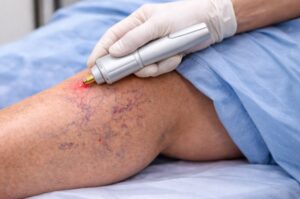Refractory pain affects millions of people in the United States. Pain is considered refractory when conventional medical options are ineffective in providing relief. In most cases of chronic pain, doctors can treat the areas or general body with anti-inflammatory medications and physical therapy. When those options are no longer providing sufficient relief, you have moved into a different category of pain. In this situation, you need a pain management specialist on your side. The physicians at MVM Health – Pain, Vein & Wellness of East Stroudsburg are your answer to chronic and refractory pain.
It is estimated that 40% of the adult population has chronic pain, mainly due to musculoskeletal degenerative conditions. Within that group are those who have moved past the point of standard pain management and are in need of a specialized pain treatment & management plan.
3 Common Underlying Causes of Refractory Pain
Although there are many causes of refractory or intractable pain, the following are some of the most common. If you suffer from one of these conditions, contact the MVM Health team of experienced professionals to help relieve your symptoms and get back to a life without constant discomfort.
Degenerative Spinal Disease
Degenerative Spinal Disease or Degenerative Disc Disease is a common cause of lower back and neck pain. When degenerative changes occur in the lumbar spine or cervical spine, it can affect the structure and function of your entire spine. This condition most frequently worsens with age.
When the discs in your spine age, wear and tear, they lose fluid and become thinner and less flexible. When this happens discs can no longer provide the same cushion and flexibility to your vertebrae that they once could and you experience pain and stiffness. This degeneration can happen progressively over time or can happen faster as a result of an injury.
Fibromyalgia
Fibromyalgia is a disorder characterized by widespread musculoskeletal pain accompanied by fatigue, insomnia, and memory & mood issues. Research has shown that fibromyalgia amplifies pain by affecting the way your body process pain signals. Fibromyalgia often is initially triggered by physical trauma, infections, or significant stress. In other cases, it happens gradually with no trigger.
Those with fibromyalgia are also known to experience headaches, TMJ disorders, irritable bowel syndrome, and depression. While there is no cure for Fibromyalgia, minimizing the symptoms is the goal of a comprehensive treatment plan.
How is refractory pain treated?
Chronic and refractory pain usually requires a pain management plan that progresses as your symptoms may progress. There is a wide variety of specialized treatment practices offered by MVM Health in order to find and provide the best solution for each of our patients. They include:
- Physical Therapy
- Caudal Epidural Steroid Injection
- Celiac Plexus Block (Percutaneous Approach)
- Cluneal Nerve Blocks
- Discography (Thoracic/Lumbar)
- Facet Joint Injection
- Intrathecal Pump Implant
- Kyphoplasty (Balloon Vertebroplasty)
- Lumbar Epidural Steroid Injection
- Lumbar Sympathetic Block
- Lumbar Transforaminal Epidural Steroid Injection
- Mild Procedure (Vertos Medical)
- Medial Branch Block
- Prolotherapy Treatment for Chronic Lower Back Pain
- PRP Therapy for Chronic Back Pain
- RACZ Caudal Neurolysis
- Radiofrequency Neurotomy
- Selective Nerve Root Block (SNRB)
- Spinal Cord Stimulator Implant
- Stem Cell Therapy for Spinal Disc
- Superion Interspinous Spacer (Vertiflex)
- Thoracic Epidural Steroid Injection
- Thoracic Transforaminal Epidural Steroid Injection
The physicians at MVM Health – Pain, Vein & Wellness strive to provide a wide range of proven treatment methods to treat chronic pain. If you are experiencing pain or have been diagnosed with a chronic disorder that causes constant, unrelenting pain, speak to our team and get the treatments you need to get back to your lifestyle.







